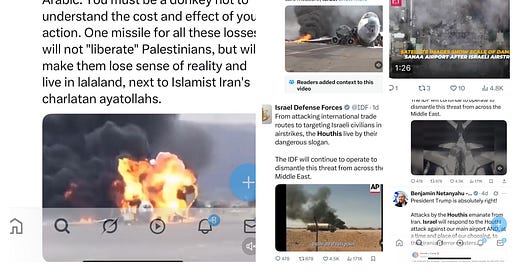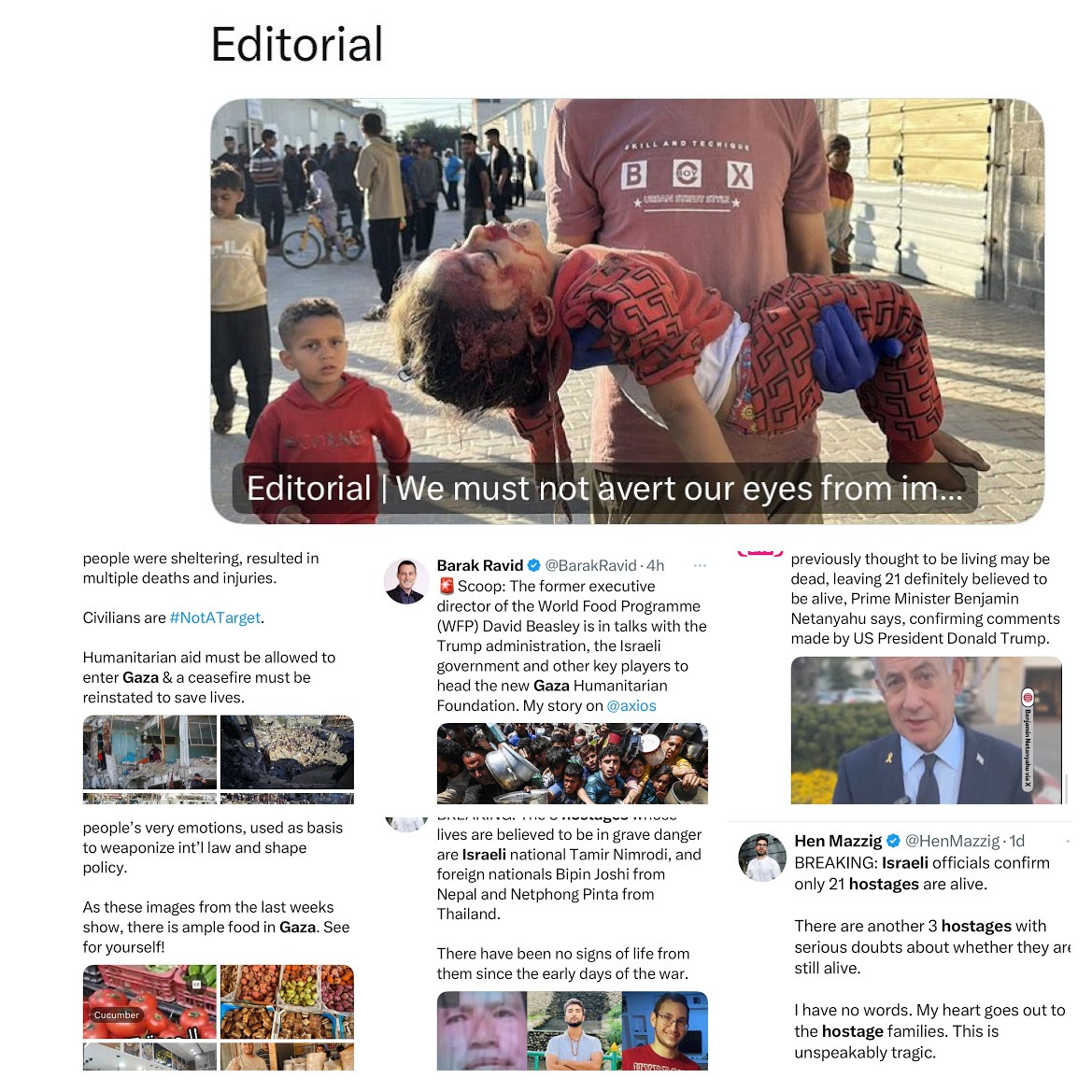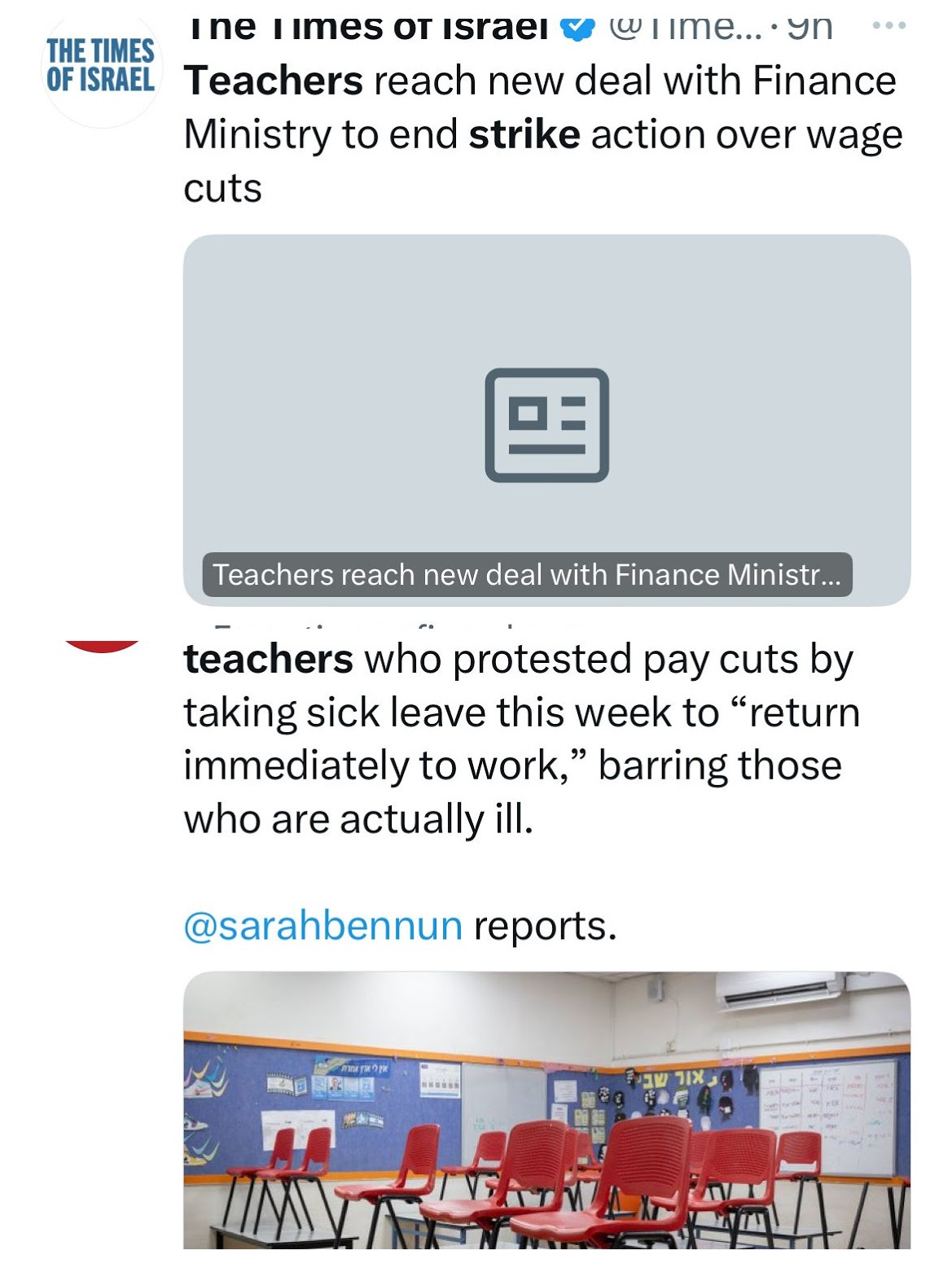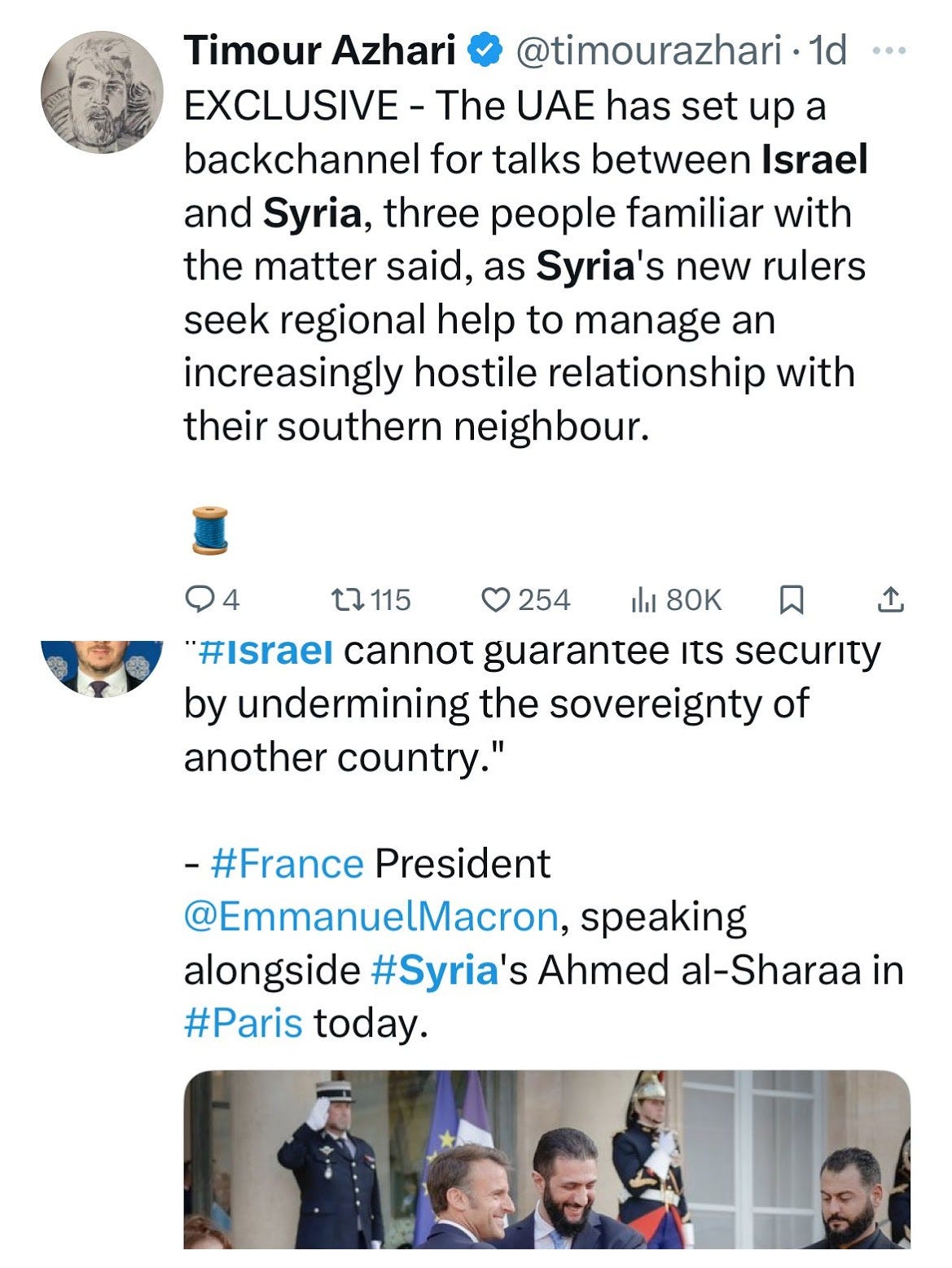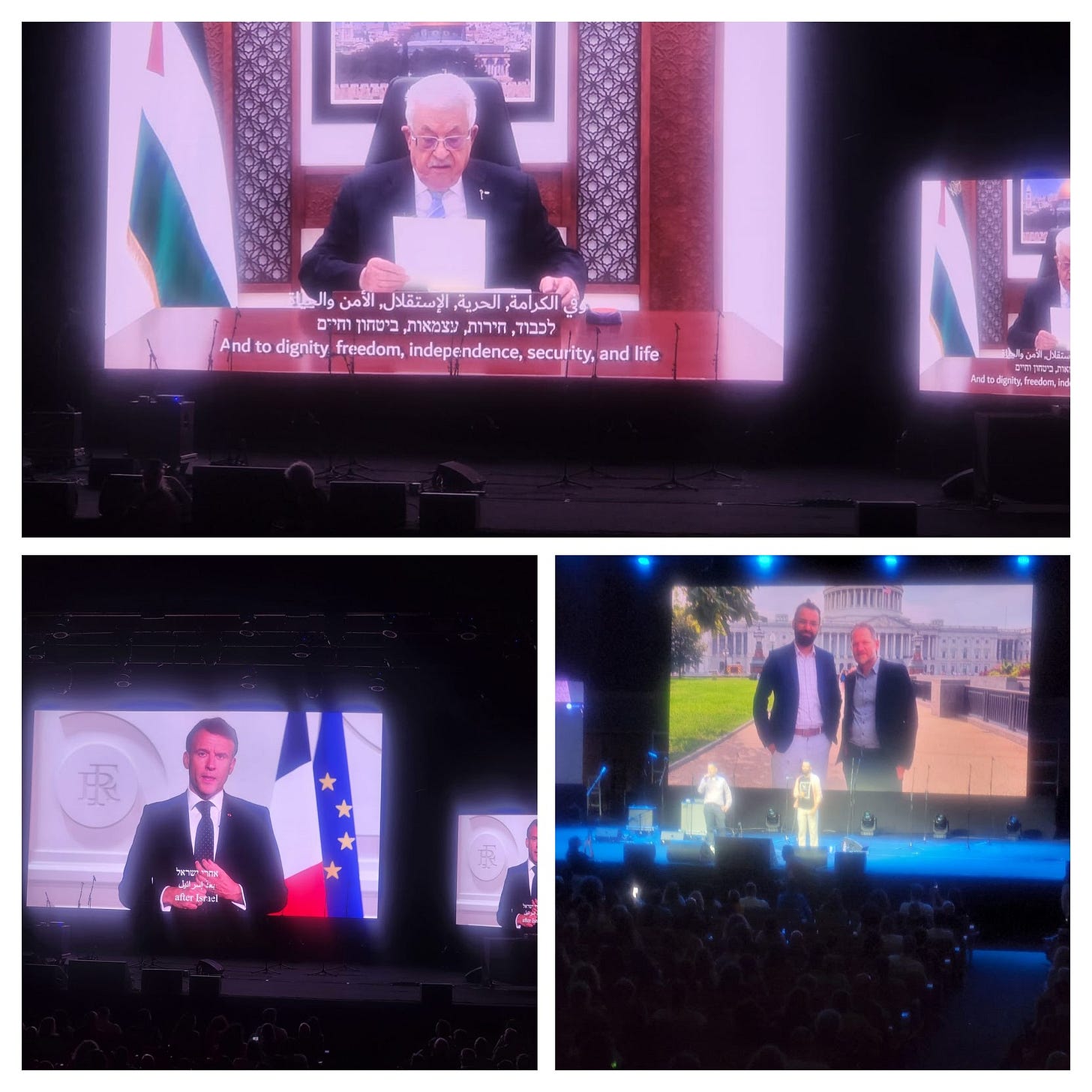Israel at War - Day 580
1. Escalation of the Violence Between Israel and the Houthis in Yemen
Israel launched an intensive air strike on the Houthis in Yemen as retaliation for their attack on Israel. Israel decided to launch the air strike due to the missile that targeted Ben Gurion International Airport. The Israeli army failed to intercept the missile, and it almost hit the runway. As a result, many foreign airlines cancelled all flights in and out of Israel. Some airlines decided to cancel all flights until further notice, while others may resume their flights to and from Israel next week, but there is a lot of uncertainty about which flights may or may not be cancelled.
Many international airlines resumed their service to Israel after a long pause only when the ceasefire was announced as part of the hostage deal in January 2025. The ceasefire lasted until 18 March, 2025, when Israel launched a series of surprise airstrikes in Gaza. As the Houthis have declared that they will not suspend their attacks on Israel until the war in Gaza ends, the foreign airlines that fly to and from Israel are questioning the safety of continuing their service.
Due to the cancellations, the Israeli airline El Al, which is almost the only airline that continues to operate out of Israel, raised its prices, creating anger among Israelis.
It is important to say in this context that President Trump, who decided a few weeks ago to strike the Houthis, who were threatening commercial sea traffic, suddenly reversed direction and declared that the Houthis are fine, that they have promised not to attack American vessels and ships. That declaration left Israel alone to safeguard itself. Iran sponsors the Houthis, providing them with arms and financial support.
It is still unclear when and if Israeli skies will fully reopen. The Houthis continue to threaten Israel, and they continue to launch missiles targeting Israel almost daily.
2. President Trump Announced that Only 21 Israeli Hostages Are Considered Alive, Shocking the Israeli Families
For months, it was commonly believed that among the 59 Israeli hostages still held captive in Gaza by Hamas, 24 of them are considered to be alive. Earlier this week, President Trump said in a meeting with journalists that only 21 hostages are alive. This announcement shocked Israelis, especially the families of the hostages, who were not informed of the change. Later, PM Netanyahu announced that Israel knows that 21 of the 59 hostages still held by Hamas in Gaza are alive, and there is uncertainty about the status of three.
Hamas has not released any factual information about the hostages. Hamas also does not allow the Red Cross to see and visit the hostages, while not even transferring medicines that some of them need. Hamas does not reveal who is alive and who is dead. Israel managed to collect information through intelligence, some of which is based on testimonies of the released hostages that were kept together with others, or saw them in captivity. Some information is based on classified information obtained by other means, some information was obtained by American intelligence. Some of the 59 hostages were murdered on October 7th, and their bodies were taken to Gaza by Hamas militants. The status of three of the 24 hostages who are considered to still be alive is uncertain, as there has been no sign of life since October 7th, which prompted President Trump to say that there are only 21 alive. On the other hand, there is no definitive evidence that they are dead.
Meanwhile, Israel continues to not allow any humanitarian aid into Gaza. Human rights organizations, which are still operating in Haza, say that there is no more food and no more medical supplies. The UN warns of a severe humanitarian crisis. The US is trying to pressure Israel to allow convoys of humanitarian aid into Gaza.
The Israeli army issued thousands of draft orders to reservists to execute a plan to occupy the whole Gaza Strip to put pressure on Hamas to surrender and accept a hostage deal. Many reservists don’t want to report for duty, claiming that the war has no strategy and is a political war that should end.
3. Teachers’ Protest Gains Traction Due to Planned Pay Cuts
Following the Ministry of Finance's announcement of public sector-wide pay cuts of 3.3% to finance war efforts, the schools and pre-school teachers’ unions announced a three-hour strike on Sunday morning. The teachers’ protest and the public uproar caused by pay cuts were further fueled by the fact that Haredi teachers were excluded from the planned cuts.
The Ministry of Education petitioned the labor court to prevent the strike, the court ruled that the strike could last for two hours.
The teachers and pre-school teachers’ protest expanded to include pre-school aides, with some 20,000 of them calling in sick. In an attempt to quell the protest, the Ministry of Education announced that it will summon the protest leaders to a hearing before dismissal. The protest continued for several days, with many schools, especially in central Israel, striking for several days in a row.
Unlike previous teachers’ strikes, this week’s protest galvanized wide public backing, as parents’ associations in major cities voiced their support for the teachers’ strike. The public education system is already understaffed, with an additional 6,000 teachers and 1,500 homeroom teachers currently needed. The protests and strikes this week raised the concern that more teachers will resign.
After five days of strikes, the teachers’ union and the Ministry of Finance reached an agreement, whereby the teachers’ pay will be cut by 0.95% rather than 3.3%.
4. Israel and Syria Hold Backchannel Talks
Israeli media outlets quoted a Reuters report this week that the United Arab Emirates is secretly mediating between Israel and Syria. The talks are reportedly focused on security and intelligence matters and “confidence-building” between the two countries. Syrian interim president Ahmed al-Sharaa confirmed that such backchannel talks are taking place during his visit to Europe this week, the first since he came into power December 2024.
One of the three sources told Reuters that the talks, which began after Syrian President al-Julani visited the UAE in April, are now focused on “technical matters,” and that all possible issues are on the table, but a Syrian senior security source said the talks are only about “counterterrorism,” and do not address Israel’s current military actvities in Syria.
The same source said that purely military matters, especially those related to IDF operations in Syria, are not being discussed in these talks. All parties involved have declined to comment officially.
Since the Assad regime was overthrown and replaced by al-Sharaa, the president has said on several occasions that Syria will not pose a threat to Israel.
Eralier this week, al -Sharaa has met with French president Emmanuel Macron at the Elysée Palace in Paris, where Macron urged him to protect all Syrians "without exception." Macron also commented that Israel’s recent strikes in Syria will not ensure its long-term security.
5. Thousands Gather in Jerusalem for the People’s Peace Summit
The summit, organized by the “It’s Time” coalition, comprised of fifty peace and human rights Israeli and Palestinian organizations, brought together activists, educators, artists and thought leaders for two days of panels and workshops.
The main event, held on Friday at a major conference center in Jerusalem, featured Israeli and Palestinian peace and reconciliation activists, who called from the stage to end the war, starvation and killing of innocent civilians in Gaza, and strive for a future of peace and security for all Israelis and Palestinians.
French president Macron sent a video of support, reiterating his support for the summit and his commitment to push for a two-state solution. Mahmud Abbas, president of the PA, also sent a recorded speech, and spoke of a justice-based solution and the establishment of a sovereign Palestinian state, alongside Israel. Abbas also emphasized his commitment to non-violence and condemned violence and terror perpetrated against women, children and innocent civilians on both sides. Ya’ir Golan, Chair of the Democrats party, also sent a video conveying his commitment to Israeli-Arab partnership in government and emphasized that the only way to achieve security is through a peace agreement. MK Iman Odeh (Hadash) spoke from the stage and said: “history will remember that even during the war, Jews and Arabs continued to have faith in one another.”

